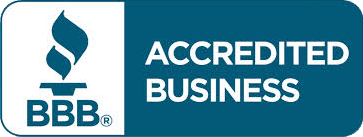Utility Contract Payment and Performance Surety Bonds

Utility contractors that are in the construction business of the installation or repair of infrastructure projects such as for telecommunications, pipelines, wastewater facilities and more, are often need to obtain performance and/or payment surety bonds as a contract requirement. The entities negotiating the construction and installation of utility projects may be a state, federal or municipal entity or may be a public private partnership (PPP).
Examples of Utility Construction Projects:
- Aqueduct construction
- Cable television line
- Conduit construction
- Gas main construction
- Natural gas compressing station
- Pipeline construction
- Power line construction
- Pumping station construction
- Radio transmitting tower
- Sewer construction
- Telephone line construction
- Water facility or wastewater facility
- Water main line construction
Obligee and Bond Conditions:
The Obligee is the entity that requires a form of financial guarantee for a utility project. A surety bond ensures the contract requirements are met. Failure to comply or perform in the manor prescribed by the contract may result in a claim filed against the payment and/or performance bond. When the Obligee files a claim against the performance surety bond, the contractor (named as the principal on the bond form) will be responsible for repayment of the claimed amount that the surety paid out. This may be a fraction of the bond amount or up to the entire bond amount depending on the stage of the work already completed. If a claim is filed by a laborer or a supplier of materials and the surety pays the claim, the principal is responsible for repayment of the claimed amount.
The performance and/or payment surety bond must be in place from the time of the signed contract up to completion of the project and does not have the option to be canceled. The premium is based on the contract amount. A performance and/or payment surety bond will remain in force until the obligee signs a certificate of completion or releases the bond.
Surety Bond Requirements:
A performance and/or payment surety bond is required by the Obligee as a condition of the awarded contract. The bond amounts vary for each Obligee. Often the bond amount will be 100% of the contracted award amount for contract amounts over $150,000.
Depending on the wording in the surety bond form and the bond amount required, the underwriter will request personal and business financial statements, resumes of experience in the industry, backlog or work-on-hand reports, and contract status reports. In some instances, the underwriter will require a deposit known as collateral, which is a financial guarantee in the event the contractor were to default on the bond and cause claim actions. The funds held in collateral will be paid out first to resolve the claim issue. If the claim exceeds the collateral, the surety will pay up to the entire bond amount and the principal is required to reimburse the surety for this occurrence.
How Much Will This Bond Cost?
The premium that you pay for an Utility Contractor Surety Bond is dependent on credit and the requirements for your project. Our Surety Bond Specialists offer free quotes based on your specific situation.
Did You Know?
A payment bond guarantees a contractor or subcontractor will pay material suppliers, laborers, and subcontractors for materials and work that is provided for a construction project. A performance bond guarantees the terms of the contract are met and the work performed as required for a construction project.
Related Links:
48 CFR 52.228-15 Performance and Payment Bonds for ConstructionUtility Company Surety Bond
More Surety Bond Questions?
Check out our FAQ page or What’s a Surety Bond? page. Should you need or choose to buy a surety bond, buy from us. SuretyGroup.com has been underwriting surety bonds throughout the U.S. for more than 35 years. When you work with us, you enjoy the unique benefit of dealing with a team of highly experienced surety agents with in-house underwriting authority. This allows you to receive competitive, low rates, quick approvals, and immediate bond delivery. In most cases, your bond will be delivered within 24 hours after you apply for it.
For a downloadable application









